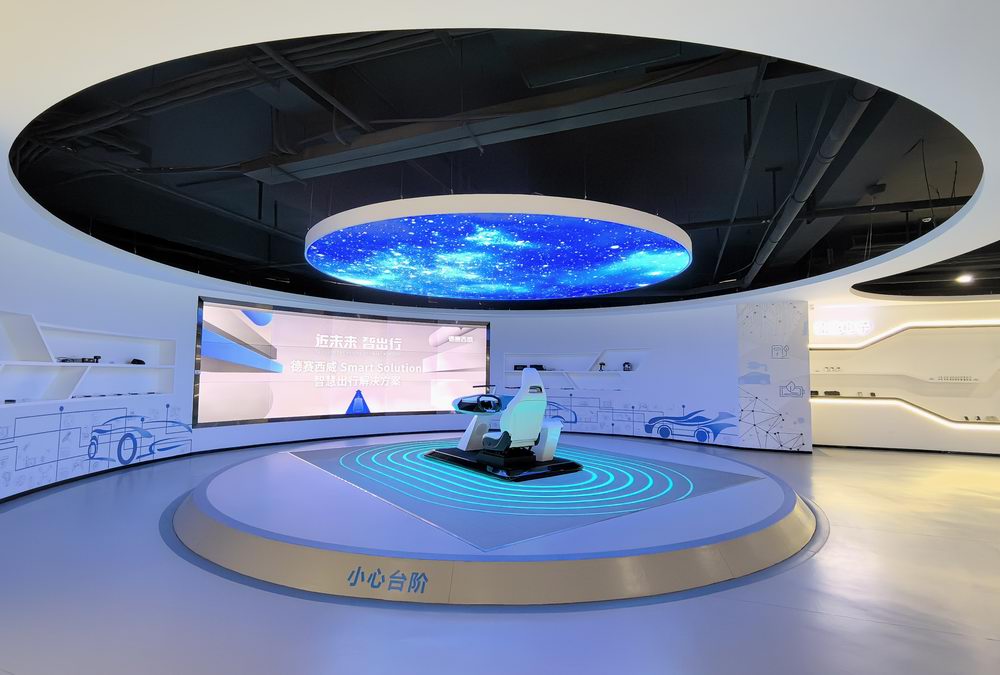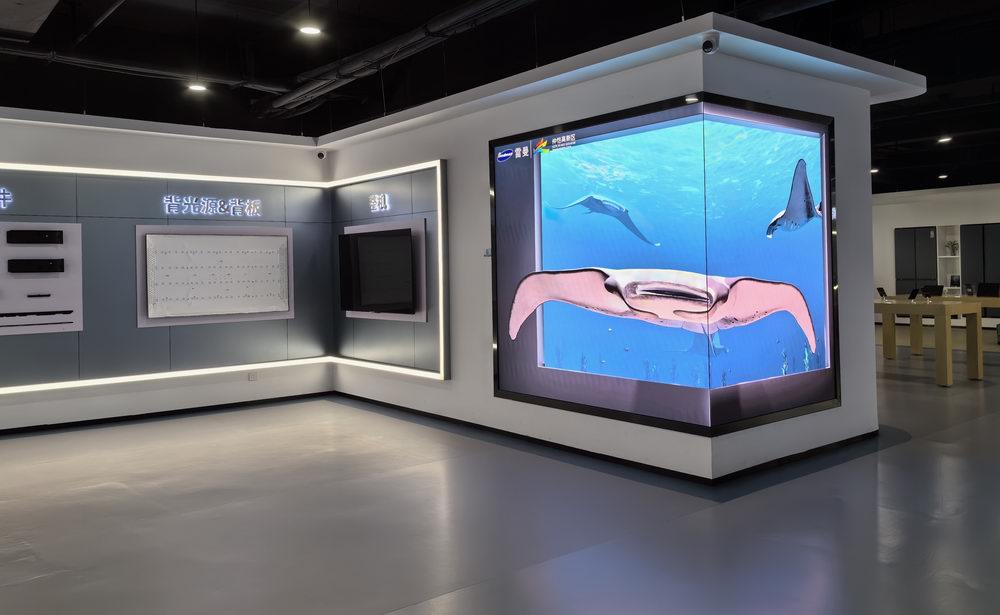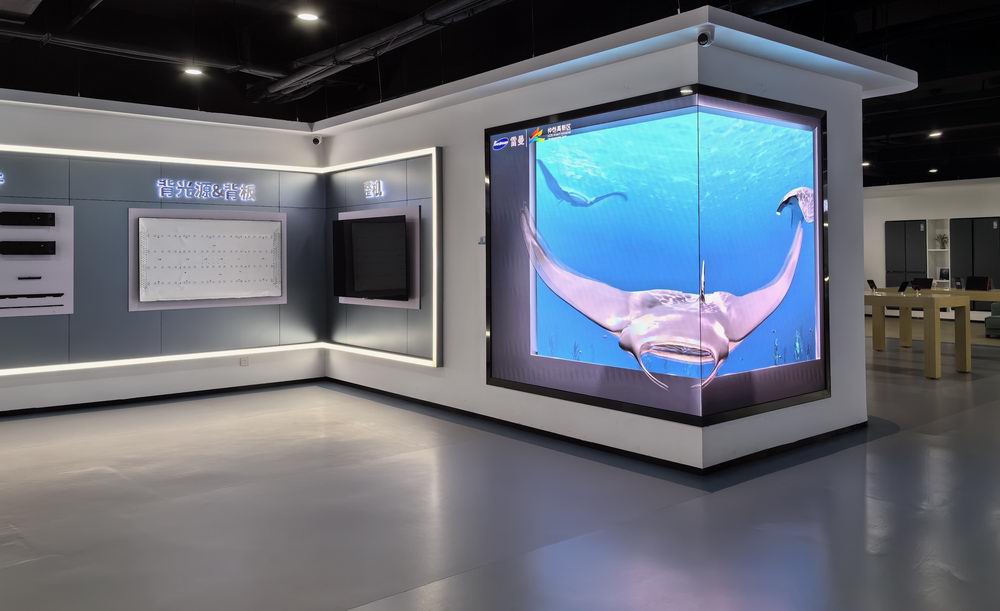How Smart Tech is Transforming Green Manufacturing

Sustainability in manufacturing is essential today. Companies are leading the charge by adopting green practices, which help reduce emissions and enhance sustainability. Environmental, Social, and Governance (ESG) factors are crucial in guiding businesses toward responsible operations. Smart technology is transforming manufacturing by boosting efficiency and minimizing waste. The Green Intelligent Manufacturing Pioneer Zone supports enterprises in these efforts. Additionally, the electronic information cloud platform aids development in the Zhongkai High-tech Zone, providing valuable resources for growth.
The Role of Smart Technology in Green Manufacturing

Integration of IoT in Manufacturing
The Internet of Things (IoT) plays a crucial role in modern manufacturing. Factories use IoT to connect machines and systems, creating a network that communicates seamlessly. This connectivity enables real-time data management, which is vital for efficient operations.
Real-time Data Management
Real-time data management allows manufacturers to monitor production processes continuously. Sensors collect data from machines, providing insights into performance and potential issues. This constant flow of information helps companies make informed decisions quickly. As a result, factories can minimize downtime and improve resource utilization.
Predictive Maintenance
Predictive maintenance is another benefit of IoT integration. By analyzing data from equipment, manufacturers can predict when maintenance is needed. This proactive approach prevents unexpected breakdowns and extends the lifespan of machinery. Companies save money on repairs and reduce production costs by avoiding unplanned downtime.
AI and Automation in Green Factories
Artificial Intelligence (AI) and automation transform green factories by enhancing efficiency and sustainability. These technologies streamline processes and reduce human error, leading to more consistent outcomes.
Energy Efficiency
AI optimizes energy use in manufacturing. Smart systems analyze energy consumption patterns and suggest improvements. Factories can implement these changes to lower energy usage and reduce their carbon footprint. This approach not only benefits the environment but also cuts operational costs.
Waste Reduction
Automation contributes to waste reduction in green factories. Precise control over production processes minimizes material waste. AI-driven analytics identify areas for improvement, ensuring resources are used efficiently. This focus on waste reduction supports sustainable manufacturing practices.
Case Studies of Smart Green Factories
Smart green factories around the world showcase the potential of technology in sustainable manufacturing. These case studies highlight successful implementations and certifications that set industry standards.
LEED Certification Examples
Leadership in Energy and Environmental Design (LEED) certification recognizes buildings and factories for their environmental performance. Many smart factories achieve this certification by incorporating green technologies. These facilities demonstrate commitment to sustainability through energy-efficient designs and resource conservation.
Successful Implementations
Numerous factories have successfully implemented smart technologies to enhance sustainability. For example, ATP Electronics embraces environmental sustainability efforts. The company uses smart manufacturing to improve pollution control and eliminate outdated equipment. These initiatives lead to better corporate environmental performance and increased investment in environmental protection.
In the Zhongkai High-tech Zone, the National Foreign Trade Transformation and Upgrading Base (Electronic Information) Cloud Platform supports enterprises. This platform provides valuable resources for companies to adopt smart manufacturing practices. Businesses in the zone benefit from enhanced development opportunities and improved competitiveness in the global market.
Green Intelligent Manufacturing Pioneer Zone and Electronic Information Cloud Platform
Green Intelligent Manufacturing Pioneer Zone
Initiatives and Innovations
The Green Intelligent Manufacturing Pioneer Zone stands as a beacon for sustainable industrial practices. Companies within this zone actively engage in innovative projects to reduce environmental impact. For instance, General Electric has committed to cutting greenhouse gas emissions by 50 percent by 2030. This commitment involves using renewable energy and minimizing waste. Such initiatives showcase the zone's dedication to fostering green manufacturing.
Impact on Sustainability
The impact of the Green Intelligent Manufacturing Pioneer Zone on sustainability is profound. By adopting eco-friendly technologies, companies significantly lower their carbon footprints. Patagonia, a company known for its environmental commitment, uses recycled materials and reduces water usage in its processes. These efforts contribute to a cleaner environment and set a standard for others to follow. The zone's focus on sustainability not only benefits the planet but also enhances corporate reputations.
Electronic Information Cloud Platform
Data Integration
The electronic information cloud platform plays a crucial role in modern manufacturing. This platform integrates data from various sources, enabling seamless communication between systems. IBM, a tech giant, leverages such platforms to increase renewable energy use and implement energy-efficient technologies. Data integration helps companies monitor operations and make informed decisions. This approach leads to more efficient processes and reduced environmental impact.
Enhancing Manufacturing Processes
Manufacturers benefit greatly from the electronic information cloud platform. This platform enhances manufacturing processes by providing real-time insights into production. Companies in the Zhongkai High-tech Zone utilize these insights to improve competitiveness. Access to valuable resources allows businesses to adopt smart manufacturing practices. The platform supports enterprises in achieving their sustainability goals while boosting productivity. The zone's focus on innovation ensures that companies remain at the forefront of green manufacturing.
Benefits of Transitioning to Smart Factories

Environmental Benefits
Reduced Carbon Footprint
Smart factories lead the way in reducing carbon emissions. Advanced technologies optimize energy use, which lowers greenhouse gas output. Factories achieve this by using AI-driven systems that monitor and adjust energy consumption. The result? A significant drop in carbon footprints.
Sustainable Resource Use
Efficient resource use stands as a hallmark of smart manufacturing. IoT devices track material usage in real-time, ensuring minimal waste. Factories employ data analytics to refine processes and conserve resources. This approach supports long-term sustainability goals.
Economic Benefits
Cost Savings
Smart factories offer substantial cost savings. Automation reduces labor costs by streamlining repetitive tasks. Predictive maintenance minimizes unexpected repairs, saving money on equipment downtime. These efficiencies translate into lower operational expenses.
Increased Productivity
Enhanced productivity defines smart manufacturing. AI and automation increase production speed and accuracy. Factories experience fewer errors and consistent output quality. This boost in productivity strengthens competitiveness in the global market.
Social Benefits
Improved Worker Safety
Worker safety improves with smart technology. Automated systems handle hazardous tasks, reducing workplace injuries. Real-time monitoring alerts staff to potential dangers, promoting a safer environment. Employees benefit from enhanced protection and peace of mind.
Community Impact
Smart factories positively impact communities. Reduced emissions and waste contribute to cleaner environments. Local economies thrive as businesses grow and create jobs. The Zhongkai High-tech Zone exemplifies this with its supportive cloud platform. Enterprises gain access to resources that foster development and innovation. This collaboration enhances community well-being and economic prosperity.
Challenges and Requirements for Smart Manufacturing
Technological Challenges
Integration Complexity
Smart manufacturing involves integrating various technologies like AI, IoT, and cloud computing. This integration can be complex. Each system needs to communicate effectively with others. Manufacturers must ensure seamless connectivity among machines and software. The complexity increases with the scale of operations. Companies often face difficulties in aligning these technologies with existing systems.
Cybersecurity Concerns
Cybersecurity stands as a major concern in smart manufacturing. Connected systems are vulnerable to cyber threats. Protecting sensitive data becomes crucial. Manufacturers must invest in robust security measures. Regular updates and monitoring help safeguard against breaches. A strong cybersecurity framework ensures safe and reliable operations.
Organizational Requirements
Workforce Training
Smart manufacturing requires skilled workers. Employees need training to handle advanced technologies. Understanding AI and IoT applications is essential. Training programs should focus on practical skills. Hands-on experience helps workers adapt to new systems. Continuous learning keeps the workforce updated with technological advancements.
Change Management
Implementing smart manufacturing involves significant changes. Organizations must manage these changes effectively. Clear communication helps employees understand new processes. Leadership plays a key role in guiding transitions. Supportive management fosters a positive environment. Successful change management leads to smoother adoption of smart technologies.
The Zhongkai High-tech Zone National Foreign Trade Transformation and Upgrading Base (Electronic Information) Cloud Platform supports enterprises in this journey. Companies benefit from resources that aid in adopting smart manufacturing practices. Access to such platforms enhances development and competitiveness.
ESG factors hold immense importance in today's business landscape. Companies must commit to sustainable practices to enhance transparency and reduce carbon footprints. The Zhongkai High-tech Zone National Foreign Trade Transformation and Upgrading Base (Electronic Information) Cloud Platform plays a pivotal role. This platform supports enterprises by providing resources that drive sustainable growth. Smart technology continues to evolve, offering promising prospects for manufacturing. Embracing these advancements ensures a future where businesses thrive ethically and sustainably.
See Also
Utilizing High-tech Zones for Business Expansion
Investing Wisely in Huizhou's Lucrative Industry
Leading Eco-Conscious Battery Manufacturers in Huizhou
Innovative Advancements in Huizhou's Zhongkai High-tech District
Exploring Zhongkai High-tech Zone: A Decade of Energy Innovation
Zhongkai High tech Zone National foreign trade transformation and Upgradi Base(Electronic Information)Cloud Platform.
Address: Zhongkai High-tech Zone,Huizhou City ,Guangdong,China
E-mail: huizhoueii@163.com 13510001271@163.com
Tel: +86-0752-3279220 Mobile: +86-13510001271


